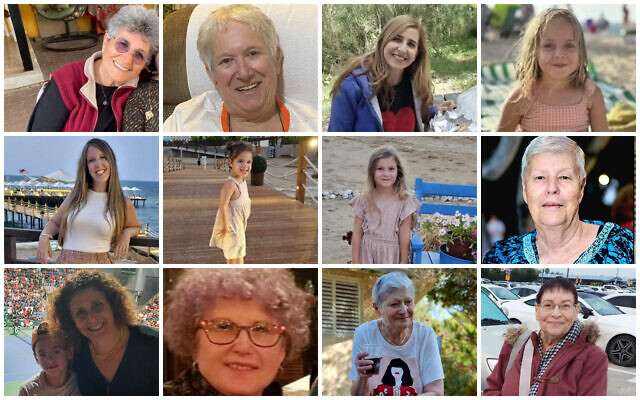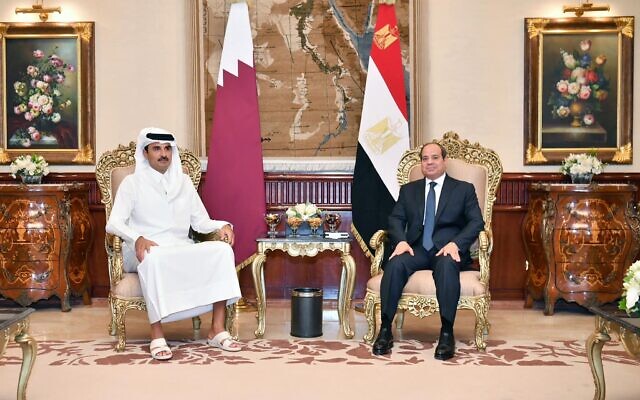



In a rare move, a small Qatari private jet landed at Ben Gurion Airport Saturday, with a delegation of officials from the Gulf nation that has no officials ties with Israel, but whose mediation with the Hamas terror group was key to the current hostage release deal unfolding over the past two days.
Hebrew media outlets reported that the team was in Israel to discuss the current Qatar-mediated agreement, as well as potential future extensions or separate deals. Previously, Mossad chief David Barnea had flown to Qatar to negotiate the deal to release some 50 Israeli hostages for a four-day lull in fighting, which went into effect Friday. The agreement includes the release of some 150 Palestinian prisoners over the four days.
The delegation arrived as Israel was readying for the release of a second group of abductees from Hamas captivity as part of the hostage deal on Saturday afternoon, as images of the first 13 returnees on Friday reuniting with their loved ones swept the nation.
The Qatari flight arrived from Larnaca in Cyprus, where it had reportedly stopped briefly in order to avoid a direct flight from Doha to Tel Aviv.
There was no immediate comment from Israeli officials on the jet’s arrival.
The expected release Saturday afternoon or evening will come on the second day of a pause in fighting as part of a hostage deal that went into effect Friday at 7 a.m.
The temporary truce between Israel and Hamas includes a four-day pause in the war, the first since Hamas’s October 7 assault on Israel, and the release of some 50 Israeli hostages in groups of roughly a dozen per day. The truce can potentially be extended for one extra day for each group of 10 more hostages freed by Hamas.
Analysts say Qatar has honed a careful balancing act in negotiating the hostage release deal, allowing it to maintain warm relations with Western powers, while keeping ties with radical groups and states regarded as pariahs even by close allies.
“This is what we can do that nobody else can do and this is us using all of our abilities,” Qatar’s Foreign Ministry spokesman Majed Al-Ansari told AFP last week. “We’ve geared the whole country toward this. If it doesn’t work, all hell will break loose.”

The West is increasingly using the influence of the small but gas-rich Gulf Arab state ruled by Emir Tamim bin Hamad Al-Thani in these situations, with the role of Qatar also crucial to the release in September of five Americans held by Iran.
While Egypt in recent years has traditionally served as the main mediator between Israel and Palestinian groups, and Turkey under President Recep Tayyip Erdogan also made no secret of its desire to be involved, the focus was on Qatar helping to return hostages safely.
Behind the scenes, Qatar was triangulating between Israel and Hamas and Qatari ambassadors had met with the families of hostages around the world, Ansari said.

“They know that there are children, there are women, there are families that are suffering every day, from the lack of information from the fact that they don’t know what is happening with their family members right now. So it’s a renewed sense of duty on us,” he said.
Qatar has hosted Hamas’s political office for more than 10 years, but is also home to the largest US military base in the region.
Qatari money has helped Hamas pay the salaries of its civil servants, while the current emir’s father and predecessor Hamad Bin Khalifa Al-Thani even visited Gaza in 2012.
